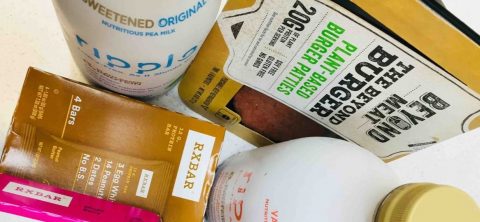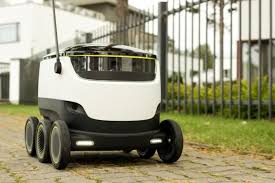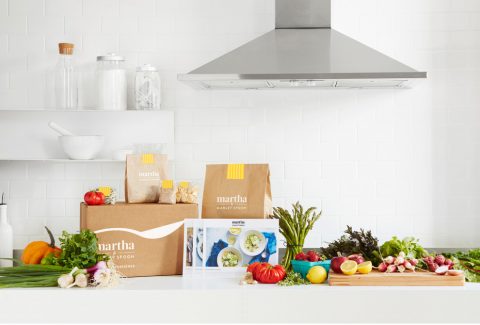Here at DigitalFoodLab, we had a great week with a lot of events (cf. below) where we had the opportunity to taste a lot of innovative products. We also received a massive order of disruptive plant-based and insects products.
All these startups are trying to make us change the way we eat, arguably for our own health or the environment. But how do they plan to change the habits we have been accustomed for many years? What caught my attention is how I wonder each time I taste a new product, how it relates to the ones I know. As Charles Doug explains in his book The Power of Habit, it’s a hard thing to break an installed habit loop made of a cue (craving for something calling itself a burger and looking like it), an action (cooking it) and a reward (the smell and taste).

Cooking and eating all the aforementioned products, even when trying to be unbiased, I wasn’t able to put aside what the “real” product should taste. When we look at all the successful Foodscience products that have emerged recently, we may conclude two things:
– first: do not try to change people habits, fake veggie burgers have failed for years. Those who, like Beyond Meat, thrive right now look, feel, taste (and are priced) close enough to the “real” ones to enter customers’ current habit loop.
– second: if your product can’t enter customers’ habit loops, just build another one. Startups like Soylent and Feed (cue: I don’t have time + I want to have a healthy meal/reward: inexpensive, nutritious and tasty drink) are building their success here.
Matthieu
(should you need any further information please do not hesitate to contact me)
BIG DEAL

The delivery robot startup Starship Technologies raised $25 million.
The funding will help the company to take its robots to market . It had announced earlier this year that it was ready to start selling robots througout Europe and the U.S.
TOP NEWS
In our last newsletter, we talked about the 11 million investment made in Lunchr. Here is news about a $70 million investment in Ritual, a Boston located service that enables employees to order food from local restaurants, skip the wait. The app adds a social cue by letting coworkers piggyback on a team member to bring ordered foods.

Marley Spoon announced it’s IPO last week. Despite being located in Berlin and being more known for its association with Martha Stewart in the U.S., the startup will make it’s IPO in Australia ASX. It claims 110,000 customers (5 to 10% of the size of its major competitors Hello Fresh and Blue Apron) across its different markets, 37% of them in Australia (where it aims to be profitable later this year).







